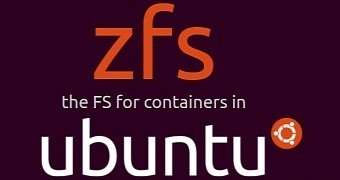Software Freedom Conservancy group has issued a statement saying that the recent implementation of ZFS in Ubuntu is actually a GPS violation. The truth seems to be a matter of perspective.
Ever since Canonical announced its plans to support ZFS (Zettabyte File System), there has been an abundance of messages from users who say they are infringing the GPL license. More precisely, the ZFS is licensed under CDDL and Linux kernel under GPL v2, which in theory would mean that they can't ship both in the same system.
The discussions regarding this issue are not new topics, and they have been going on for years. ZFS has been around for quite some time, and this is not the first time when people are saying that it can't be done.
The recent announcement made by Canonical that it's going to provide support in Ubuntu 16.04 LTS for ZFS reignited the discussion and Software Freedom Conservancy's opinion is just the latest one in this matter.
Legal or not?
The main problem seems to be related to the integration of ZFS in the Linux kernel binary blob, and that wouldn't be legal. The difference is that Canonical is providing ZFS as a kernel module, which is a very different approach. Software Freedom Conservancy doesn't agree.
"If ZFS were statically linked with Linux and shipped as a single work, few would argue it was not a 'work based on the Program' under GPLv2. And, if we believe there is no legal difference when we change that linking from static to dynamic, we conclude easily that binary distribution of ZFS plus Linux — even with ZFS in a .ko file — constitutes distribution of a combined work, which we name Linux+ZFS," reads the Software Freedom Conservancy position.
The message posted by Software Freedom Conservancy is too extensive to be posted here and we encourage you to read it. On the other hand, when Canonical said that it was going to support ZFS, the company also contacted lawyers, who told them that the licenses are not in conflict.
Software Freedom Conservancy doesn't agree with this position and says the lawyers Canonical consulted are a minority, although it's not certain how they reached this conclusion.
Canonical's position is also based on precedence. There are at least two examples to help them. One was mentioned in Dustin Kirkland's message last week. The Linux kernel, under GPL v2, uses a proprietary binary blog from Nvidia. Two very different licenses that can easily coexist.
Another example is the famous Lawrence Livermore National Lab, which uses Zettabyte File System (ZFS) on its Sequoia supercomputer and it's also using Red Hat Linux Enterprise. In fact, Lawrence Livermore National Lab worked with Sun Microsystems, the original creators of ZFS, to port the file system for Linux use. They have been running ZFS on a Linux system for more than six years.
Also, if you check zfsonlinux.org, you will also notice that they clearly say that "here is nothing in either license that prevents distributing it in the form of a binary module or in the form of source code."
With that in mind, we're pretty certain that Canonical won't have any problems in shipping Ubuntu 16.04 LTS with support for ZFS, but it remains to see how all of these observations are going to play out in the end.

 14 DAY TRIAL //
14 DAY TRIAL //